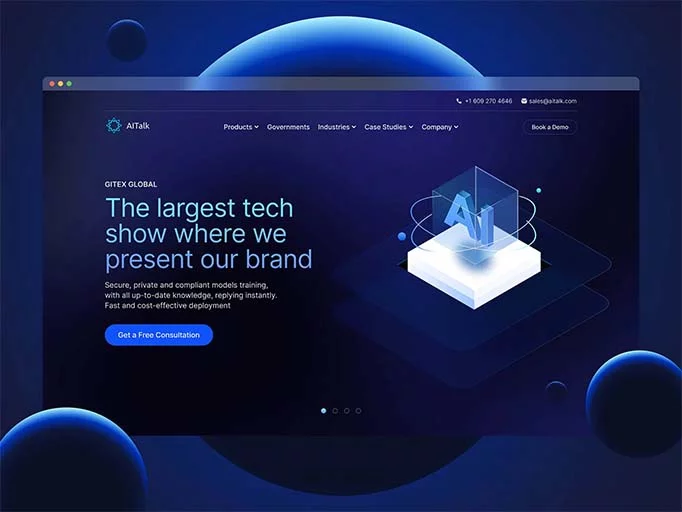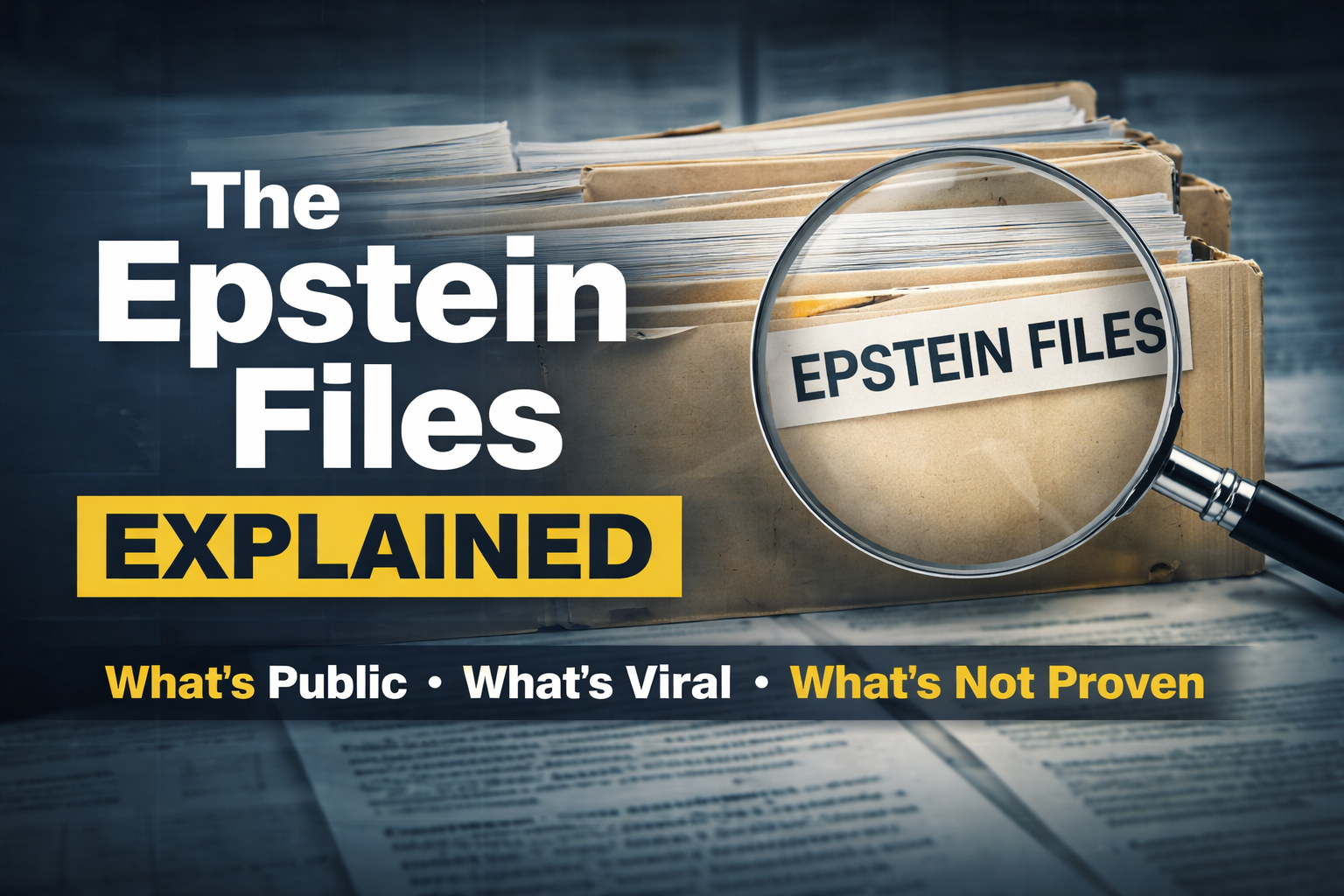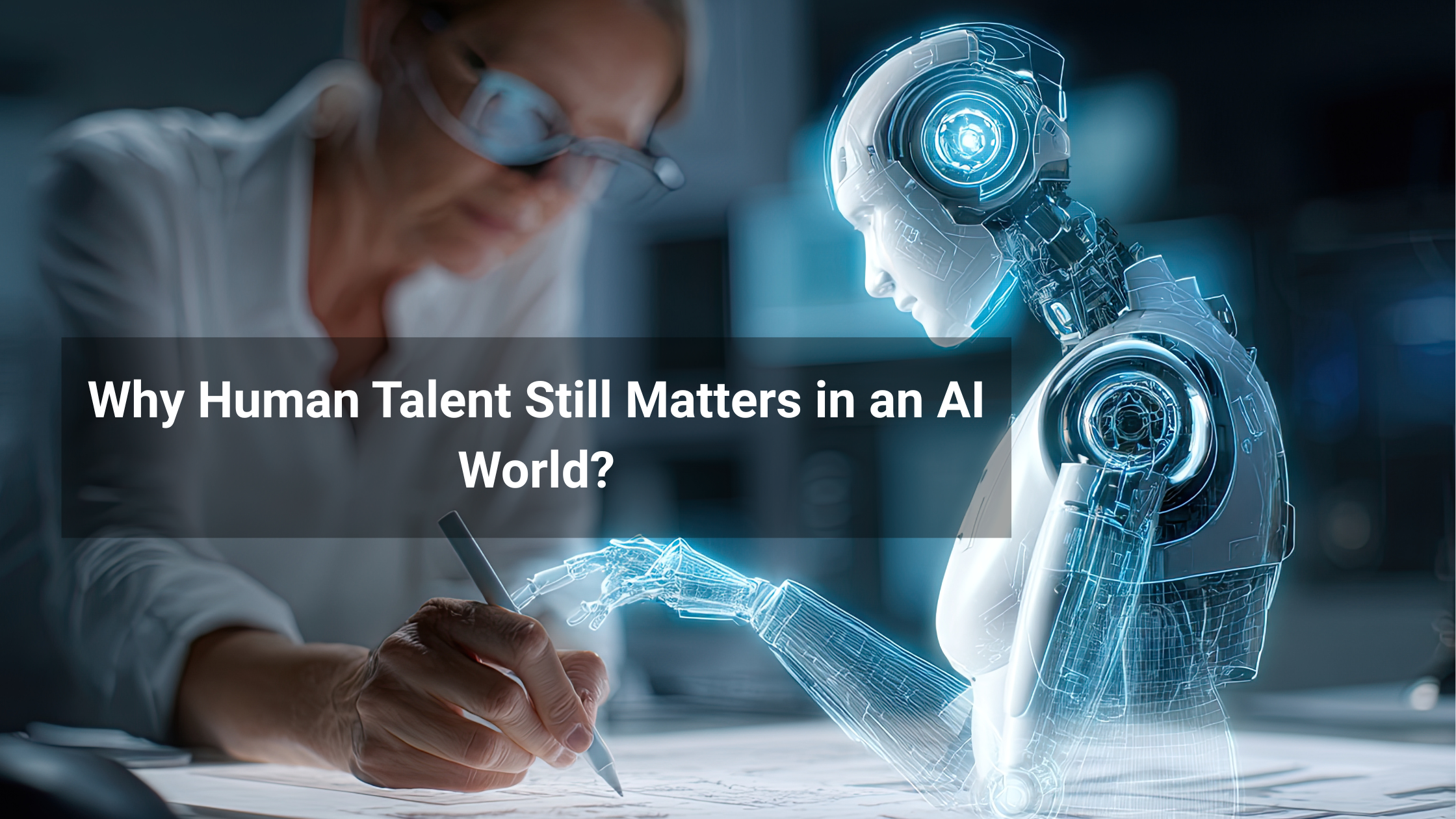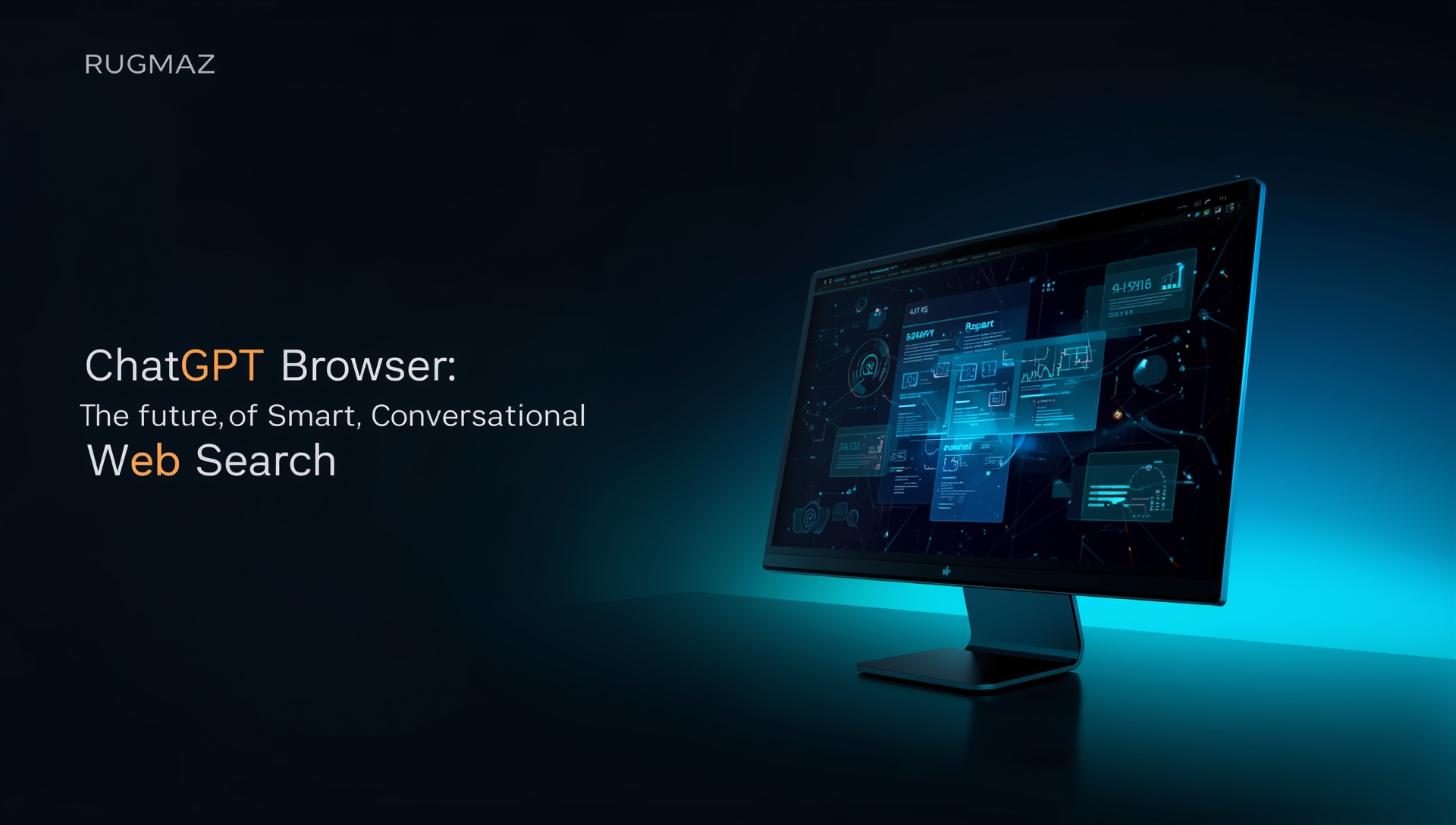
The digital world is entering a new era one where browsing the web is no longer about typing queries into a search bar and scrolling through pages of links. With the new ChatGPT browser, OpenAI has quietly shifted the internet’s foundation from search-driven navigation to conversation-driven discovery. This change is not just technical; it’s a transformation in how businesses, creators, and consumers interact with information.
Unlike traditional browsers, the ChatGPT browser doesn’t just open web pages — it understands, summarizes, and interacts with them. And that single difference could redefine productivity, SEO, and the entire digital ecosystem.
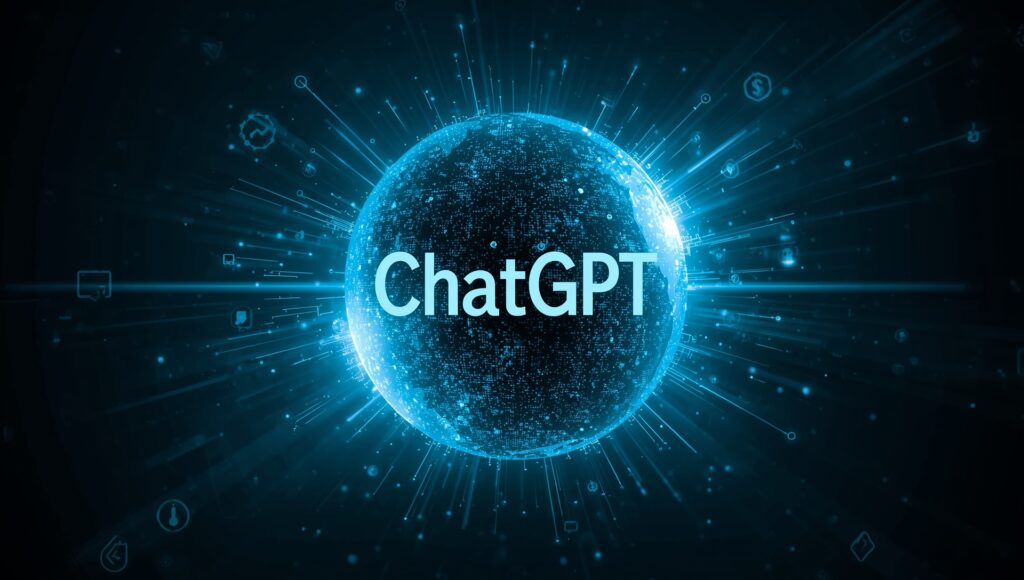
What Exactly Is the ChatGPT Browser?
The ChatGPT browser is an integrated browsing environment that allows the AI model to access live internet data safely and intelligently. It goes far beyond standard search tools. Instead of relying on static training data, it reads real-time content, interprets web pages, and extracts verified information within seconds.
Think of it as a hybrid between a browser and a research assistant capable of understanding context, filtering noise, and delivering meaningful insights instead of endless results. The experience is fluid, conversational, and astonishingly fast.
For businesses and SEO professionals, this isn’t just another AI feature it’s the start of a new digital interaction model.
Why It Matters More Than You Think
When you use Chrome or Edge, you type, click, and hope to find what you’re looking for. The ChatGPT browser removes that guesswork. It turns web navigation into a guided experience — where questions lead directly to actionable knowledge.
Here’s what makes it revolutionary:
- Contextual Understanding: The browser doesn’t just read text — it understands tone, relevance, and intent.
- Verified Real-Time Results: It reads live sites, not cached data, giving users the most current insights.
- No Distractions: Instead of ads or unrelated results, it filters everything down to what truly matters.
- Conversational Recall: It remembers your previous searches in context, allowing you to continue where you left off.
This is browsing without noise — a tool built for professionals, analysts, and creators who value accuracy and speed over endless clicking.
A Closer Look: How ChatGPT Browser Differs from Traditional Browsers
Below is a comparison showing how the ChatGPT browser differs from standard browsers like Chrome or Safari in both capability and purpose.
| Feature | ChatGPT Browser | Traditional Browser |
|---|---|---|
| Core Function | Conversational exploration and research | Manual navigation and page viewing |
| Data Source | Real-time web access + contextual AI understanding | Static pages viewed manually |
| User Interaction | Chat-based, dynamic queries | Click-based, passive reading |
| Ad Experience | Minimal or none | Frequent ad exposure |
| Speed to Insight | Instant summaries, sources, and answers | Requires manual searching and reading |
| Content Understanding | Semantic and contextual | Literal interpretation of text |
| Business Use Case | AI-driven data analysis, content research, SEO insight generation | Browsing, reading, or manual data gathering |
| Learning Adaptability | Learns user intent over time | No contextual learning |
| Multitasking | Handles multi-query sessions efficiently | Tab overload and manual switching |
| Data Interpretation | Can summarize, compare, and cross-reference automatically | User must manually evaluate information |
This table shows one clear truth: browsing is evolving from navigation to conversation. And the organizations that adapt early will gain a competitive edge in how they discover, use, and present digital information.
How the ChatGPT Browser Impacts Businesses and SEO
For companies like Rugmaz, which operate in AI-driven SEO and digital intelligence, the ChatGPT browser is more than a tool — it’s a data revolution.
Here’s why:
- Search Becomes Conversational
Instead of competing for blue-link visibility, brands must now compete for contextual relevance. If ChatGPT cites your website as a trusted source, you gain immediate credibility — faster than any search engine ranking could achieve. - Content Strategy Changes
Content must now be structured for AI comprehension, not just search bots. Rugmaz’s optimization strategies already focus on semantic clarity, readability, and expertise — perfectly aligned with how the ChatGPT browser interprets the web. - User Experience Reimagined
Customers no longer want to “find” information — they want it delivered in a conversational tone, ready to act upon. Businesses that adopt AI-compatible content will dominate these emerging discovery spaces. - AI-Enhanced Decision-Making
With the ChatGPT browser, research becomes an automated task. Market analysis, trend evaluation, and content audits can be done conversationally — saving hours while improving accuracy.
Behind the Scenes: The Technology That Powers It
Underneath its simple interface, the ChatGPT browser operates with a complex blend of real-time web crawling, semantic parsing, and adaptive retrieval models. Instead of fetching entire pages, it reads sections relevant to the query, understands their meaning, and generates structured responses.
It’s built to:
- Detect context in long articles.
- Avoid misinformation by cross-checking multiple live sources.
- Provide short summaries or deep dives, depending on the user’s intent.
This architecture makes it not just a browsing assistant but a knowledge operating system — capable of merging AI understanding with the dynamic internet.
The New SEO Landscape in the ChatGPT Browser Era
Traditional SEO focuses on ranking factors like backlinks, keywords, and technical performance. In the ChatGPT browser era, the focus shifts to trust, topical depth, and clarity.
Rugmaz’s AI SEO services are already built around this future. By structuring content for machine comprehension, we ensure that business websites are readable not only by people but also by AI agents like ChatGPT.
Three priorities define the next wave of SEO:
- Semantic Optimization: Writing content with meaning and relevance that AI can interpret easily.
- Source Credibility: Building online authority through verified, high-trust mentions.
- User Intent Mapping: Creating structured content that aligns with how users ask questions conversationally.
Businesses that implement these principles early will become the preferred references in AI-driven browsing experiences.
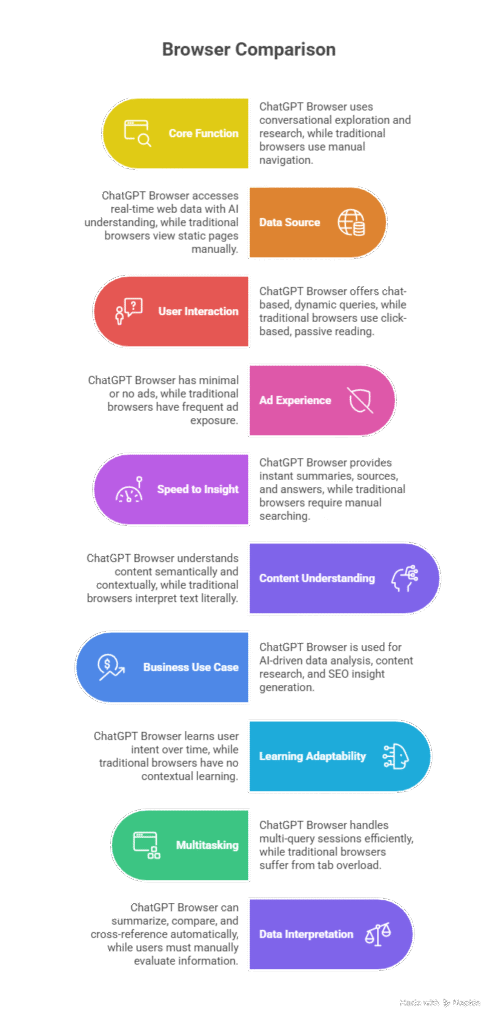
Real-World Use Cases of the ChatGPT Browser
- Market Research – Instead of hours of manual search, marketers can now ask ChatGPT to scan live competitors’ strategies, pricing, and positioning.
- Academic Work – Students and researchers can gather verified data without sorting through irrelevant pages.
- Content Development – Writers can validate statistics and discover fresh topics through instant live browsing.
- E-Commerce Intelligence – Brands can track live product trends, reviews, and consumer patterns in real time.
Each of these use cases shows that browsing is no longer static — it’s interactive, adaptive, and intelligent.
What This Means for the Future of Digital Work
In a world where speed, trust, and intelligence drive success, the ChatGPT browser is not just another update — it’s a new foundation for human-AI collaboration.
Businesses that integrate it into their workflows will spend less time searching and more time creating, analyzing, and making informed decisions.
Rugmaz sees this as the natural next step in digital evolution:
AI will not replace human insight — it will amplify it.
Final Thoughts
The introduction of the ChatGPT browser marks a turning point in how people interact with information online. It transforms the browser from a passive window into an active, intelligent partner — one that learns, adapts, and collaborates.
For forward-thinking companies like Rugmaz, this shift represents opportunity. By aligning SEO strategies and content frameworks with AI comprehension, Rugmaz is helping brands stay visible, relevant, and competitive in this emerging landscape.
The future of browsing is conversational, efficient, and deeply human.
And it has already begun.


